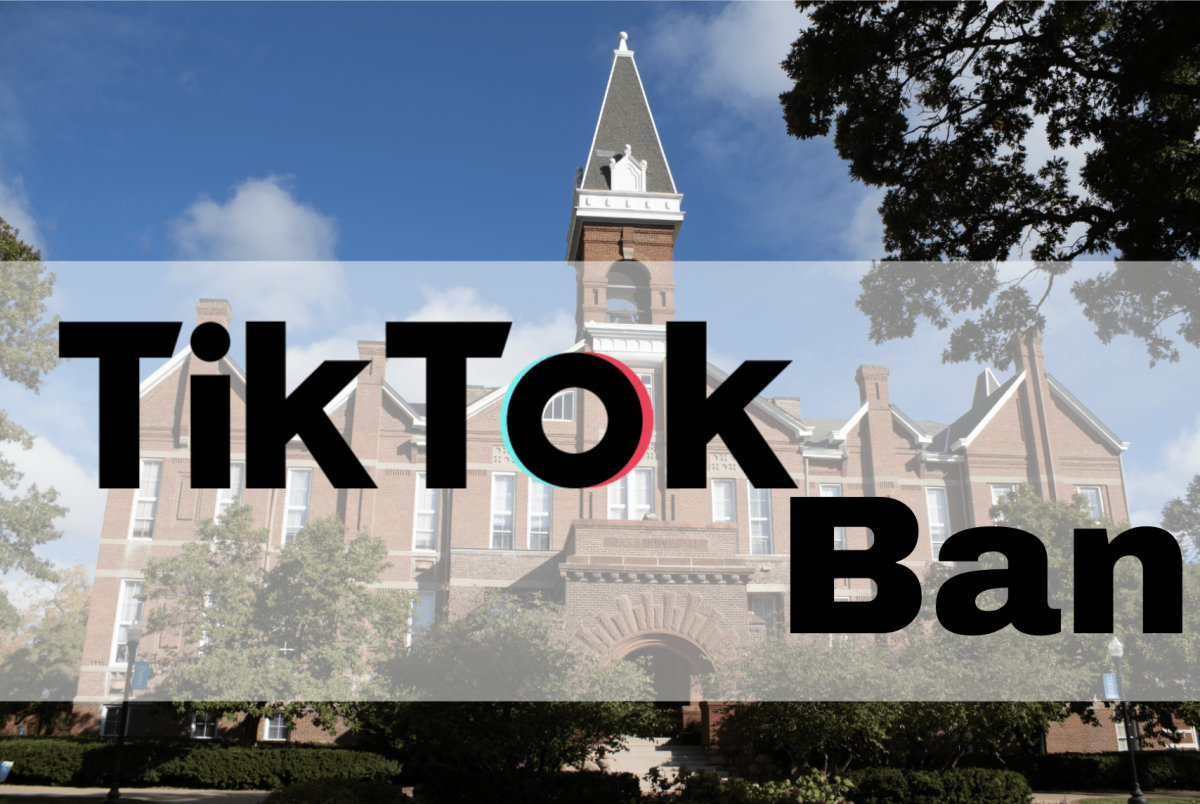Foreign Affairs Committee approved a bill that would give President Joe Biden the right to ban TikTok on a federal level. The bill was advanced in a 24-16 vote, with unanimous support from the GOP and no democratic support. Former President Donald Trump attempted a similar ban in 2020, but the courts blocked him.
This bill is part of a larger conversation between lawmakers in various countries. The United Kingdom, Canada, France and New Zealand have all banned TikTok on government-issued devices. Here in the United States, TikTok has been banned on devices used by the Army, Marine Corps, Air Force, Navy and Coast Guard for three years. Current legislation introduced by Josh Hawley (R-MO) would ban TikTok across the United States for all users.
“TikTok is a wonderful social network and has done some things that other social networks just have not been able to figure out in terms of finding lots of great content, so my initial thought is I hope it doesn’t happen,” said Chris Snider, an associate professor in the School of Journalism and Mass Communication.
While Congress gathers information about TikTok’s relationship with its parent company, ByteDance, and the threat the app poses to sensitive user data, states and universities are implementing their own property-based and Wi-Fi-based bans. Over a dozen states have banned TikTok on government-issued devices. Additionally, many universities, including the University of Texas at Austin, Auburn University and Boise State University, have blocked TikTok from their Wi-Fi networks.
The Florida Board of Governors passed an emergency regulation that maps out new requirements universities must follow to ensure the security of their data. Public universities in Florida have banned TikTok from university computers and blocked it from the school Wi-Fi in accordance with this emergency amendment.
“That is one of the great things about going to a private university. It’s not the universities that block it. It is the governor or state government, so Drake doesn’t have to worry about that,” Snider said. “I’m not super worried about Drake doing the same thing.”
On April 14, Montana became the first state to implement a complete TikTok ban when its House of Representatives passed S.B. 0419, which prohibits downloading the app, in a 54-43 vote. For every day that people have the ability to download the app, either the app store or TikTok will be fined $10,000. Users would face no penalties.
Legislation to regulate TikTok and other social media has also been proposed in multiple state legislatures. In Connecticut, a bill has been introduced that would ban those under 16 from accessing social media without parental consent, and a similar bill is making its way through the Iowa legislature. Additionally, Montana’s House Bill 770, which creates new requirements that social media platforms need to follow when removing a post, successfully passed the House and advanced to the Senate.
Some believe that regulations over the technology sector are better than a complete ban.
“The government needs to focus on regulating social media in general and less on TikTok individually,” Snider said.
Content creator Brad Podray, known on TikTok as Scumbag Dad, talked about regulations in terms of filming on private property and getting consent from anyone in a published video. Overall, he believes that the issues with online media are due to low social media literacy and how easy it is to spread lies on social media. He mentioned a potential law in which someone filmed on private property without their consent who is displeased with the result can subject the content creator to a civil penalty. However, he does not believe this is a practical answer.
“I don’t think the government intervention can play a role here because at the end of the day people can still fall back on saying it is a work of fiction, so there is no logical way that a government body can enter this field and start to claim oversight on people making videos,” Podray said. “I don’t think there is a practical way for the government to deal with this. I feel like this is a cultural understanding situation, where people have to be educated in such a way that they are able to listen to multiple sides of a discussion and not react emotionally.”
Erin Opar, assistant director of marketing at Drake University, is in charge of the admissions account, which is meant to provide prospective college students with information they need about adjusting to college life. The account is only a couple of months old and is only on TikTok.
Opar said Drake would have to work around a federal ban because Drake University currently uses TikTok and other social media as a promotional tool. If the TikTok ban goes into place, Opar plans to research up-and-coming social media platforms and figure out how to adapt Drake’s content to suit a new channel.
“It was a matter of reminding ourselves that TikTok hasn’t always been around, so if it goes away, it would be unfortunate for our efforts with admission,” Opar said. “But there is always going to be something new that we can get our hands on and start to work with.”
Student organizations at Drake also use TikTok to showcase their clubs. For example, Drake Broadcasting System uses TikTok to promote their live shows and other events.
“I think we will end up doing more Instagram and more short stories [if TikTok gets banned], but I feel like it would be a bit weird because we do so much TikToks,” said Keila Perez Serrano, executive junior producer at DBS. “That is where we do our little jokes, and on Instagram, we just post pictures.”
Snider and Podray both presented many alternatives to TikTok. Podray said that he sees YouTube shorts as the social media platform that many would turn to if a TikTok ban becomes reality.
“There are a ton of alternatives to TikTok,” Snider said. “All the apps, for the most part, have copied short-form video from TikTok in some way. There are plenty of established social media apps that have added these features and a couple of TikTok clone-type apps.”








